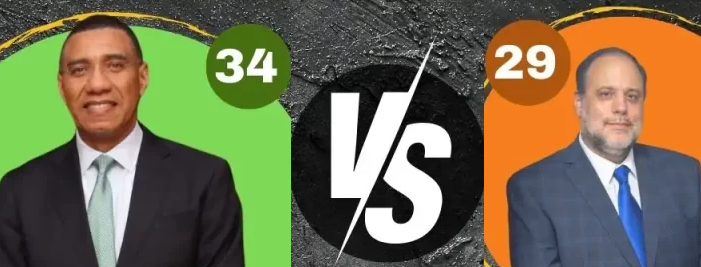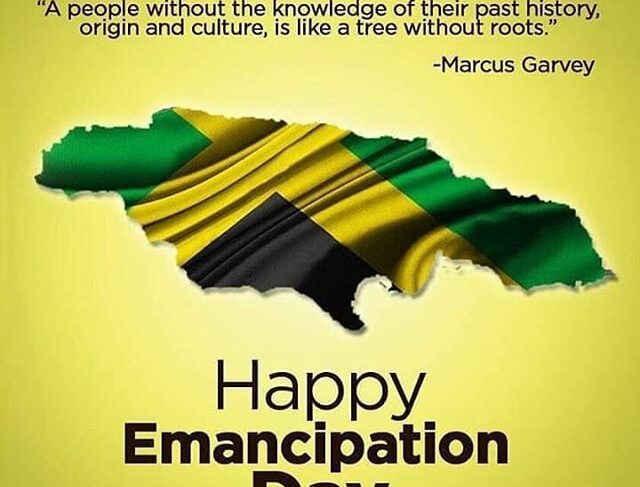By Alex Scott
There are many tales, myths even, which we tell ourselves as individuals and as groups of people. Many of these things are as a result of an ‘education’ system which drills into us from an early age the habit of not asking questions, playing devil’s advocate and absence of critical thinking. This is not something however, which is simply the issue of Jamaica or the Jamaican education system. It is an issue which we see worldwide and which is readily present in people supposedly listed as the ‘best and brightest’.
This lack of critical thinking continues to harm us and does us no good when, for example, we continue to believe that leaders sprout from nowhere and that the ideas they espouse originate in a vacuum .
This idea, this myth which was long ago exposed, has again cropped up and can be seen in the letters and articles lamenting the fact that we have no politician or civil society member who can impose order. This begging (no other word can describe it) of someone, anyone, to come forth with a grand workable plan for corruption and crime should by now be seen as a hopeless endeavour, but instead we put so much hope in the big man and leader as we still buy the line that our leaders are above us, and that the ideas (and solutions) they come up with are from a bag of tricks to which they alone have access.
Where do leaders come from, where do the ideas and dreams they speak about find their origins? Where did, for example, Bustamante get the idea to lead strikes and partake in the worker movement? Where did the idea of a political party agitating for independence come from? Was the idea really borne in the head solely of Mr Fairclough in a fit of inspiration like Saul on the way to Damascus after being denied rightful employment? Do we think Jesus just appeared from nowhere and just came up with these ideas and practices on the fly?
That is not how the world works, and that is not how the leaders and the ideas they preach emerge. They are born in movements, from the bowels of the base and find themselves moving up top. Put another way, the leader is the individual best representing the movement (the people supportive of the idea) and is offered up to act as the vanguard. The idea (ideology, principles, religion) which the leader preaches is that which the base itself believes. It is what the base follows and is what they espouse.
No one ‘rules with an iron fist’, no one rules alone, and no one makes grand ideas on the fly giving them to those below them. That is not how Stalin’s USSR, Mao’s China, Hitler’s Germany or Hirohito’s Japan functioned, nor is it how our own Jamaica functions. Each one of them represented, embodied the ideas of their group, were steeped in their ideologies and were brought forth by the members of each movement to lead them. They did not take it, did not drop from the sky and did not improvise ideas and shove it on their followers, it was in fact the opposite.
The base, the body of people in a movement — the craft, an ideology and the person in the group who can best articulate it to either the broader mass of people or to the group itself — is tapped on the shoulder and ushered to leadership positions. It is not by accident or coincidence that Andrew Holness and Peter Phillips are the leaders of their respective parties or (if I may use an obvious example) that Trump is the leader of his party. None of the talking points they have are new. All have been around, from the idea of increasing the income tax threshold (Andrew), ensuring that the first child in the family goes to college (Peter), immigrants are taking jobs (Trump).
The base in each party has been chomping at the bit for these and they have found, from within their ranks, people who they, the members, feel can best achieve these goals. Again, we see this in the JTA’s response to teacher abuse of students (bring back corporal punishment) and the PM’s response to unruly children (bring the parents to court). Both ideas have massive traction with the masses, so it should come as no surprise that our leaders give voice to them every now and then.
With all that being said, we need to then ask what kind of leader do we want?
What do we, the people who are party members, or non-affiliated, voters and non-voters want from our leaders because up to now we have been given only as good as we are willing to bear (and we bear a lot). Do we want corrupt politicians? Are we okay with them or will we vote out those who have the stench of corruption? Will we allow crime to remain a political football? Are we fine with the murder rate ticking upwards or will we demand that a bi-partisan and inclusive crime plan be drafted?
What are we the people willing to put up with and will we change our minds in such a way that we can offer up a viable politician who represents our new (or old) views? You get the leader you deserve is an adage I generally have no time for, as things are always more complex than that. However, it does hold some truth. If we can’t be asked to protest against corruption, state violence or gang violence how can we hope to get a politician, leader or ideology which will fix them?
Leaders and the ideologies they preach come from society, just as crime is a product of society. No amount of wishing will give us a leader or ideology that fixes our nation until we change what we view as okay and what we want from a leader. Leaders such as the late Hugo Chavez were made representatives of their people and offered power by them because he was from the people and best expressed their views. Aristide in Haiti was much the same, and it shouldn’t be lost on us that both ideologies, which they preached, remain alive and in the forefront of the minds of their people. What is it we want from our potential leaders, what idea, policy or principle do we want for the country as we look headfirst at a new decade?
The type of leader and ideology we are ruled by will not be decided at Belmont Road or Hope Road. They will be decided upon by us. The rules of the game, what we are willing to accept and what we will turn away, is not so much decided by those at JLP/PNP HQ, rather they are decided by a people who protest or don’t protest, who vote and who stay home. If we accept that leaders and the ideologies they have don’t fall from the sky, that they are a reflection (however warped) of society, then we can no longer hem and haw about how bad our politicians and leaders are. We either come together and change the group that offers up such poor leaders or we accept the terribly poor leadership as a reflection of what we are okay with.
Let us change our way of thinking so that we can get good leaders offered up by society to implement good policies.



